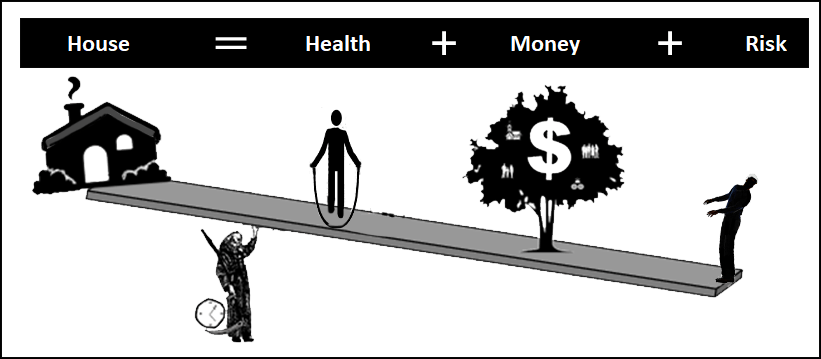My Kids Are Trying To Control My Life
Click here to see what's on this page.
Many seniors have asked Carmen and I, “Help me, my kids are trying to control my life.”One of the most difficult situations for seniors occurs when they start to fight with their children over their choices. In other words, when parents believe their children are trying to control their life. As seniors, we want to make our own choices. Very few of us want to give up our autonomy. What happens when our kids won’t let up? What can we do?

CarePlanIt discusses in detail Family Communication here. However, there are times when a child tries to control their parent’s life. This article covers situations when the child is overstepping their boundaries.
Areas Where A Child Is Most Likely To Overstep Their Boundaries
Before we get into the details of when a child oversteps their role as a child and tries to control their parent, Carmen and I want to remind you that CarePlanIt is based on an aging framework. This framework helps seniors and their families address all their questions. The roles of children and parents are covered in detail. Please review our framework here.
Back to the question. Determining when a child is trying to control their parent’s life is a grey area. However, in our research, Carmen and I discovered that there were certain boundary areas, or themes, where the parent and child thought the line was crossed. These areas included risk, money, housing, health, and end-of-life chores. The areas are discussed below.
Risk
Children become concerned about their parents when they believe their parents are taking on too much risk. Conversely, parents become upset with their children act like their parents and try to manage their risks. Life involves risk. People accept different amounts based on their personal risk tolerance levels. An extreme athlete accepts much more risk than a new mother who won’t let her baby out of eyesight. This risk assessment is personal.
Assessing our risk tolerance is not intuitive. Although it belongs to an individual, individuals often don’t know the actual risks they take on. For example, seniors that age in place (i.e., stay home) over the age of seventy are accepting the same risk of injury as a skier or snowboarder. In other words, the skier and senior have the same risk of breaking a leg (i.e., or some other bone).
Most seniors believe it’s their right to accept risks in their life. They donl;t believe they turn this responsibility over to anyone else. They are in good company. The medical community believes the same. So do the courts. Simply put, seniors have the right to accept risk. The only time risks are stripped from seniors is when they are found incompetent.
Money Or Finances
Money is another area that finds children and parents at odds. Parents want to spend their money as they see fit. Children often believe that their parents are inappropriately spending. Where this line is drawn often becomes contentious.
At CarePlanIt, we believe it’s the parent’s right to spend their money as they see fit. After all, it’s their money. The line becomes grey as seniors spend beyond their means or in such a way that impairs their ability to live out the remainder of their life.
Managing the grey line is the debate. Children become concerned when they believe their parents are overspending. If this is true, the next question to ask is what happens when and of their parent runs out of money. Do the parents believe the children are supposed to make up the difference? Or do they accept their decisions and are willing to live with less money.
Housing
At CarePlanIt we believe housing is a risk equation. It looks like this.

If you’re healthy it’s easier to stay in your own home. Any home. If you’re in perfect health you can do all your own repairs and maintenance. You can also stay in your home if you have unlimited money or resources. You simply use the money to transform your home into an environment that can accommodate your health. Need assistance, with enough money or resources, you can convert your home into an assisted living facility. Need skilled nursing assistance, with enough money, you can turn your home into a skilled nursing facility. Without money or health, you take on lots of risk.
Parents and children argue about this equation all the time. Inevitably the discussion gets to risk. See the Risk Section above.
Health
Parents and children argue about health all the time. CarePlanIt views health from a functional perspective. We ask, what can you do in your current health state. As we age, many of us decline cognitively and physically.
Children and parents argue about this decline. Children often see the decline and want their parents to make a lifestyle change. This usually involves housing and transportation.
When the children demand that their parents move to an assisted living facility, or stop driving, parents almost always object.
End-Of-Life Chores
End-of-life chores are the things seniors do at the end of their life to ensure their wishes are observed. These chores include:
Seniors complete these for several reasons. First, they allow a senior’s wishes to be followed if they become incapacitated. Second, they detail what happens with a senior’s assets after they die. Third, they minimize the chances of family controversy and fights. In other words, if WWE plan as a senior, we don;t force our family to guess and fight among themselves.
When A Child Oversteps Their Boundary
Carmen and I spoke to hundreds of families and thousands of seniors in our research. Many were concerned about their kids trying to control their life. Here’s where the boundary is breached by area.
Risk – When Controlling Children Overstep Their Boundaries
The parent(s) knows the risk and says they’re willing to accept the risk to the child. The child doesn’t care and continues to harass their parent over their behavior. It’s the senior’s life. Not the child’s life.
Risk Rule Of Thumb
If the parent can explain the risk and is willing to accept the risk, the child should back away.
Exception(s) To The Rule
Money Or Finances
The senior(s) operate on a budget, know their life expectancy, and have a plan to address their future needs. They explain this to their children. The child doesn’t care and continues to harass their parent over their spending. It’s the senior’s money, not their kid’s money.
Risk Rule Of Thumb
If the parent(s) operate on a budget, know their life expectancy, and have a plan to address their future needs the child should back away.
Exception(s) To The Rule
Housing
The parent acknowledges the housing equation (see above) and has the health or money to modify their home. The parent doesn’t have the health or resources necessary but is willing to accept the risk. It’s the parent’s life. They have a right to accept risk.
Risk Rule Of Thumb
If the parent has health or resources, the child should back off. Also, if the parent doesn’t but is willing to accept the risk, the child should back off.
Exception(s) To The Rule
Health – When Controlling Children Overstep Their Boundaries
The parent(s) is able to demonstrate their health and how it matches their current lifestyle objectives. For example, they live in a two-story home, but can climb hundred of stairs at a stadium or movie theater. Or they take regular fitness classes that demonstrate their dexterity and strength. They also regularly see their physician and have a bill of good health. If the parent(s) takes responsibility for their health, the child should back off.
Risk Rule Of Thumb
If the parent demonstrates fitness and responsibility for their health, the child should back off.
Exception(s) To The Rule
End-Of-Life Chores
The parent(s) completes their end-of-life chores. In addition, they keep them updated. Finally, they have told their family about the plans and who has them.
Risk Rule Of Thumb
If the parent has completed their end-of-life chores and their current, the child should back off.
Exception(s) To The Rule
Other Resources On Controlling Adult Children
Good article on controlling children here.
Interesting article on saying no to adult children here.